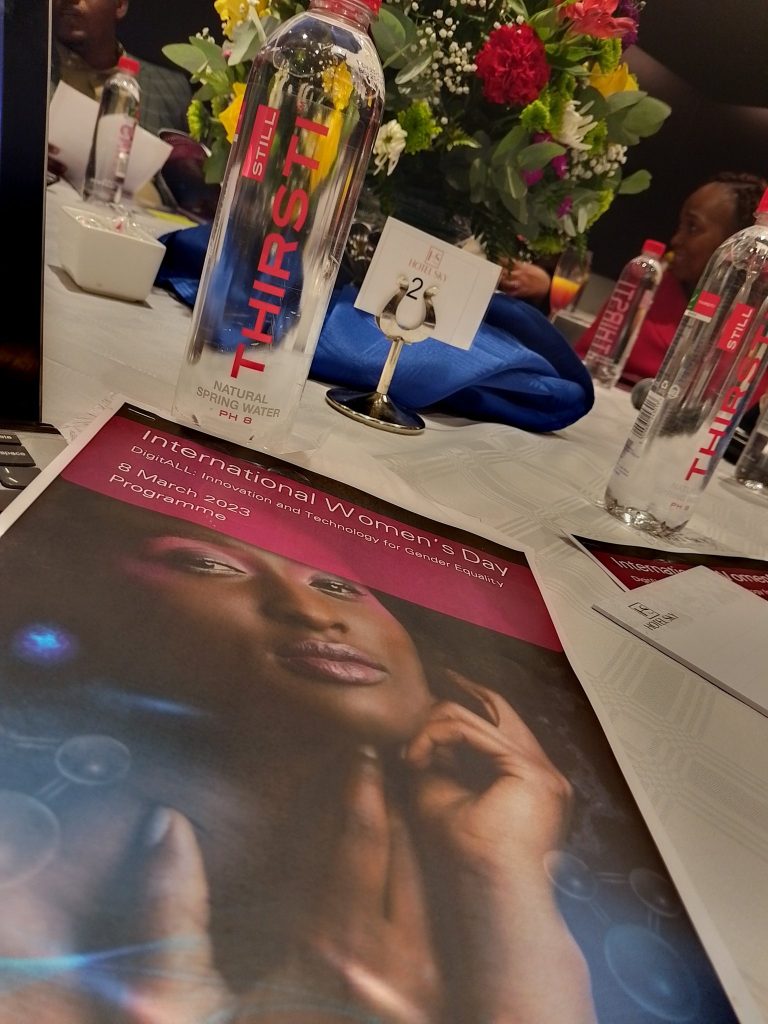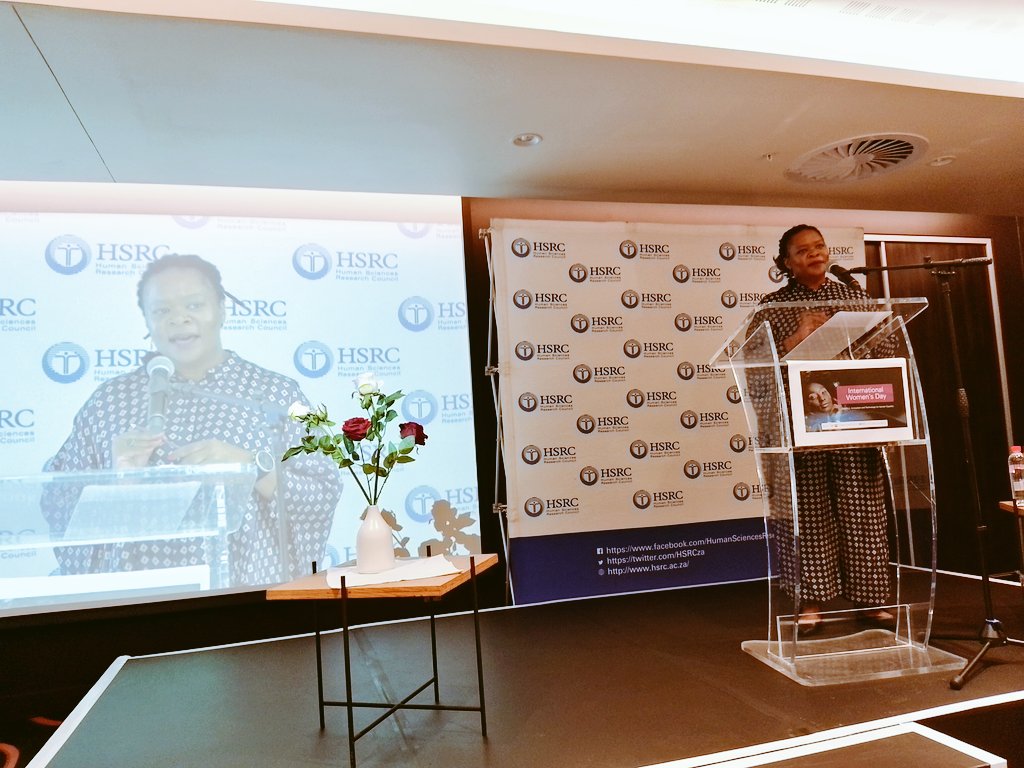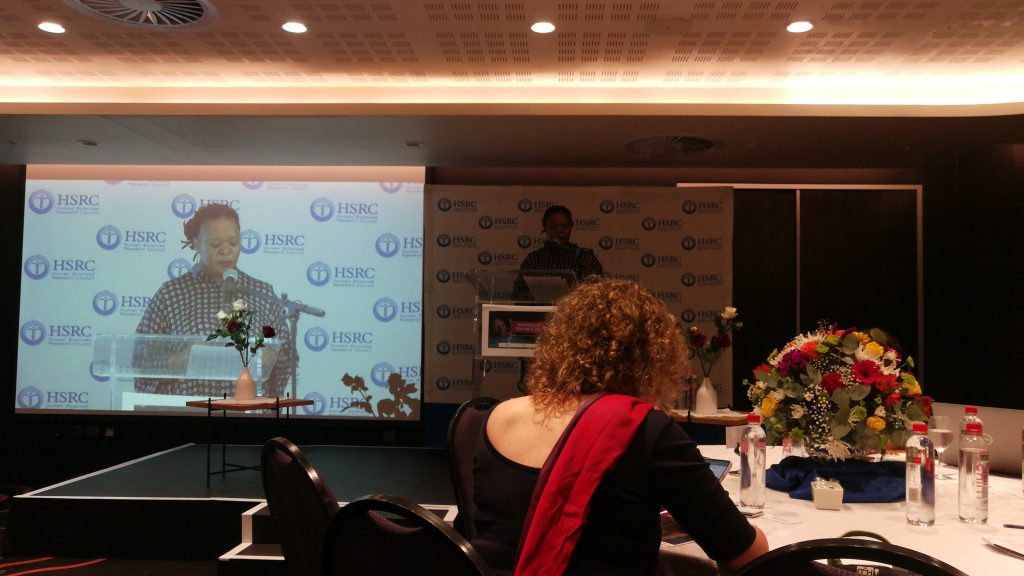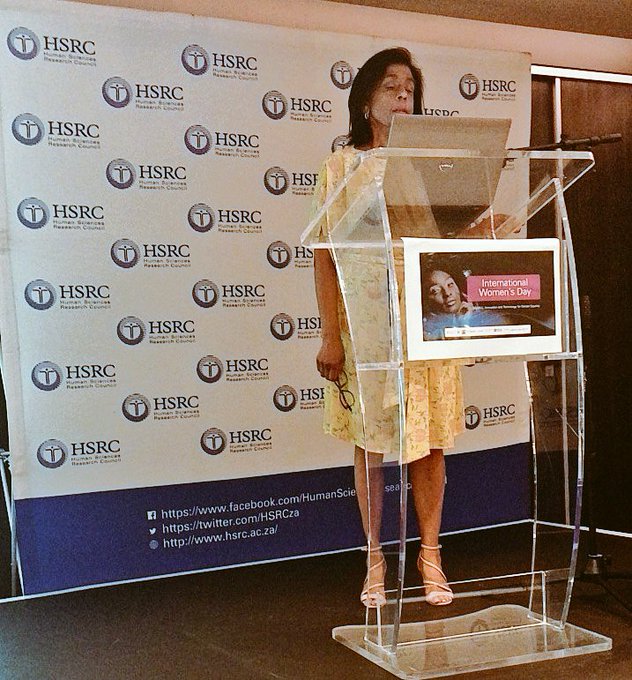In line with the United Nations (UN) and UN Women celebrations, the Human Sciences Research Council (HSRC) commemorated the 2023 annual International Women’s Day on 8 March at the Sky Hotel in Sandton, Gauteng.
The theme this year was DigitALL: Innovation and Technology for Gender Equality, which focussed on the significance of improving technology and innovation education, empowering women and girls and discussing ways of reducing gender biases. The dialogue highlighted the performance of girls in mathematics and science and discussed the roles and experiences of women and girls in the digital era.



During the breakfast dialogue, the HSRC shared findings from the Trends in International Mathematics and Science Study (TIMSS), which measures mathematics and science knowledge of fourth to ninth grade learners in various countries around the world. TIMSS also collects contextual information about the home, school and classroom environments to understand and explain learner achievement, providing an important compass for policy interventions.
Since 1995, TIMSS has monitored trends in mathematics and science achievements every four years, at fourth and eighth grade levels. TIMSS 2023 is the eighth such assessment, providing nearly three decades of trend data. TIMSS 2023 completes the transition to a fully digital administration, concluding a process that began in TIMSS 2019.



The prestigious event was organised by the HSRC, in partnership with the Academy of Sciences of South Africa (ASSAf), the British Council, L’Oréal, the United States Embassy, Nka’Thuto EduPropeller, Kenya’s High Commission, Women in Science and supported by South Africa’s Department of Science and Innovation (DSI).
About the Human Sciences Research Council (HSRC)
The HSRC, established in 1968 as South Africa’s statutory research agency, has grown to become the largest dedicated research institute in the social sciences and humanities on the African continent, performing cutting-edge public research in areas crucial to development.
The mandate of the HSRC is to inform effective formulation and monitoring of government policy; to evaluate policy implementation; to stimulate public debate through the effective dissemination of research-based data and fact-based research results; to foster research collaboration and to also assist in building research capacity and infrastructure for the human sciences.
The Council conducts large-scale, policy-relevant, social-scientific research for public sector users, non-governmental organisations and international development agencies. Research activities and structures are closely aligned with South Africa’s national development priorities.






